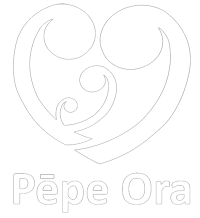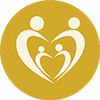Pēpe Ora: Our Journey so far
Our hope is Pēpe Ora will be the direct access point, for FREE information to local maternal services for all whānau birthing within the Greater Wellington Region.
Recognition of need
Pēpe Ora was conceptualised in the Wairarapa in 2017 with the purpose of improving better health outcomes for babies from pre-conception into the first 1000 days.
It was identified by Wairarapa stakeholders the need to inform local whānau about services available to them from pre-conception, through pregnancy, antenatal and postnatal, to pre-school.
Consultation and Research
This was recognised by undertaking some thorough community consultation and combined research. Information was gathered through organised focus groups and consumer feedback surveys in partnership with:
Regional Public Health, Wairarapa Maternity,
Tū Ora Compass Health,
Breastfeeding Wairarapa
The three Wairarapa Māori Womens Welfare League Rōpu:
Te Peka O Wairarapa,
Te Peka O Ruamahanga
Te Peka O Wairarapa Ki Te Tonga.
The Māori Women’s Welfare League research ‘He Rangāhau, Tuatahi – Naumai e Pēpe’ was the first of the foundation documents. Its focus was on identifying barriers for Māori mothers to breastfeed, their experiences of local services and, the development of local services for Māori mothers. Alongside this research community events held further identified as a stakeholder group we were not meeting the needs of tangata whenua or the diverse communities we work within.
The combination of the research acknowledged; the changing environments we lived in, our rural localities, widespread isolation, the need for online accessibility, service development supporting Māori mothers, incorporating Māori world views, and supporting the advancement of kaupapa Māori based maternal care – a joint cultural health framework reflective of Wairarapa whānau.
It was from this point that Pēpe Ora was born.
Te Whare Tapa Whā
Pēpe Ora is guided by the Māori Health Model Te Whare Tapa Whā, a holistic approach to health and wellbeing. Pēpe Ora illustrates Te Whare Tapa Whā with the four pillars of maternal care:
The four pillars represent the foundations to build upon the wellbeing of pēpe, māmā and whānau e.g.:
antenatal education
birthing practices
midwifery care
medical services
Tamariki Ora
Plunket
smokefree
safe sleep
breastfeeding
nutrition
being active
oral health
immunisations
and beyond
Pēpe Ora creates opportunities for communities to come together, identify community need, seek community solutions, encourage participation and improve engagement. The vision is for stakeholders and consumers to work collectively to improve systems that are easy to nativgate, are empowering, share resources and information, provide training opportunities and deliver consistent key health messages to whānau.
Key Goals
Key goals for Pēpe Ora identified by whānau are:
More parents are aware of the low to no cost maternal services provided to them.
Whānau feel less isolated and know where and how to access local maternal information.
There is an increase of parents and babies attending local maternal services, groups and activities.
He aha te mea nui o te ao?
What is the most important thing in the world?
He tāngata, he tāngata, he tāngata.
It is the people, it is the people, it is the people.







